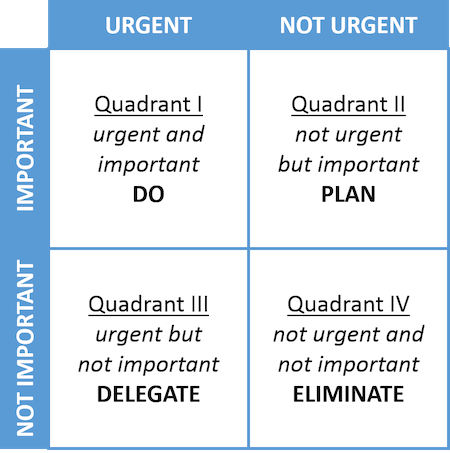I see so many people talking about their lack of motivation.
They feel demotivated, not only because of everything happening with Covid-19, but also because of the stress of constant decision-making in their personal life. It seems like in the past few months, everyone has felt their motivation levels fall and their self-doubt rise.
In this post, I want to teach everyone a secret for reversing demotivation. I’ve used it in my personal life when I was exhausted from the hard work of training for boxing, studying for physics, writing for my blog, and numerous other stressful activities.
I’ve failed and succeeded in all of these areas and with each failure, I was temporarily demotivated. However, I figured out how to motivate myself without relying on motivational videos or motivation porn on social media.
Before I tell you how I did it, let me tell you a story about a demotivated client of mine and how this advice originally came together.
Why Do You Have No Motivation?
I recently helped a client whose motivation levels were at an all-time low.
This guy ran a huge operation before a string of bad luck wiped out his bottom line. He vowed to never do internet business again, but he’s realized that working from home and making money on the internet is the only way he can be happy in his personal life.
This loss demotivated him, but he eventually got the courage to go after what he wanted. The only problem was that he had to keep working his day job until his online business ventures made him enough money to replace his current income.
He’s motivated about the online work. He’s not motivated about being forced to stay at the job he hates. The job pays well enough, but it’s not what lights his fire. However, he still has to do well enough or else he risks getting fired.
The following is the step-by-step plan I gave him for dealing with this problem.
It contains lessons I learned from motivating myself to finishing my degree, joining the army, and being unemployed at critical points along the way. It’s been adapted for his specific situation, but it still works because the end-goal is the same: identify demotivators and systematically neutralize them.
If you’re suffering from demotivation, this article will get you out of your funk and back on track.
How to Do Well When You’re Feeling Demotivated
So if you need to do well to keep the job but you don’t really care about it, I’ll tell you what worked for me in a similar situation.
Specifically, this is how I managed to deal with being demotivated during the final year of my physics degree after I decided that I was going to write, teach, fight, speak, or do anything but get a regular job.
I wanted to focus on building my other projects, but I had this VERY difficult monkey of physics hanging on my back. And I had to do well enough to get credit for the class towards my degree. In other words, C or better, so I couldn’t just “phone it in.”
This is also the technique I used when I was:
- In the last few months of my military enlistment
- Going through basic training
- When I was working at a bank but I knew my last days were near because school was starting
- During the last job I had working for someone else
Counterintuitively, I strove to do the best job I could. Rather than lag my way through the day, I got fired up, did extra work, and tried to do an exemplary job. I’ll tell you how in a moment, but first let me tell you why.
Why Work Harder On Something You Don’t Want To Do?

Self-Confidence and Self-Motivation Are Contagious
Doing well at one thing tends to bleed over into other things. Your mood is altered and it makes you feel like you can take on the world. Having a good day at your main job ALWAYS translates into a good night on your side project. The opposite of this is usually not true.
Gaining Leverage And Good Feelings Counters Demotivation
Few things are more disruptive to your mood than people WISHING you’d leave. I’m not saying they need to beg you to stay, but it’s surprising what being desired by your current peers does for your motivation levels in anything you do. Plus, you don’t want to anger your co-workers because you never know how someone might help you down the line.
Time Flies When You’re Having Fun
Time flies when you’re engaged and having fun. If you have to spend 8 hours a day somewhere, it’s going to be a miserable time if you’re taking a miserable approach to it. It’s much better to feel like you don’t have enough time at your main job rather than too much. You’ll leave with higher energy, which you can then translate into your other endeavors.
I’ve always intuitively known this, but it wasn’t until basic training that I was formally introduced to the concept of “embracing the suck.”
Since basic training was a necessary evil, I decided to change the “evil” part of it. I could do nothing about the “necessary”, but I can always choose my own perspective.
I came up with different goal-setting games for myself and I turned basic training into an arena for developing my willpower. I wanted to push myself harder than they were going to push me. In short, I figured out how to use the time instead of having the time use me.
Other soldiers were putting up makeshift calendars in their lockers to count the days or they talked about their favorite parts of home to get their mind off the heat of Ft. Leonard Wood, Missouri.
I chose to dig deeper into the hard work. I focused on how much better I’d be than everyone else and my former self. I stopped thinking about how it would benefit my later goals (going to school) and instead chose environment-specific goals (passing shooting qualifications and running a sub-5-minute mile). I turned my prison into a playground.
Small Steps To Push Harder And Eliminate Your Demotivation At Work
You’ve mentally accepted that you still have to do the work you don’t want to do so you can pay the bills. You know that you have to:
- Self-motivate because it’s contagious
- Turn your prison into a playground
- Use the time instead of having it use you
Now let’s cover the small steps you can take to make this process easy and effective.
Organize Your Life
According to numerous studies, order promotes effective execution and makes you more efficient.
A disciplined diet and workout schedule is part of order organizing your life. Cleaning and organizing your work environment is part of an organized life. Doing these things also positively affects your mood. A healthy body makes it easier to get started and a clean area makes it easier to focus.
One of my biggest weaknesses is that I’m very messy. At the very least, I’m messy to the point where it hurts me. Well, you aren’t going to have this problem. Prime your working area ahead of time.
I did this a lot for my hardest semester of physics where I took mechanics, electromagnetism, thermodynamics, and solid-state physics. While I had made up my mind that I didn’t want to do academia anymore, it was my prison that I was too close to quit.
It was hard to focus on homework when I would have rather been writing, so I kept my desk area organized to prevent distraction.
Figure Out What’s Important

After you’ve organized your life, recognize the difference between small but important and small but unimportant. Here’s an example from basic training.
A small and unimportant thing was getting a max score on my PT test. I only needed a certain number to pass, so rather than devote my free time to training, I devoted it to shooting.
A small but IMPORTANT thing was wearing spandex shorts beneath my workout shorts. Not doing this resulted in disciplinary action. They don’t even always catch you if you do forget. But I got caught once and never forgot again.
Ignore the unimportant and start your day with the important. Start your day with these things so that you don’t have them gnawing at your mental concentration. You’ll need as much of that as possible for the final step.
Pick Something To Be Good At
It may not even be directly related to your current role. It may not even be an absolute advantage, just the thing you do well. But pick it and do it better than everyone else, every time, to the best of your ability. An example from my studies:
I was the worst mathematician in my class. I’m strong at math compared to the general population, but many of my classmates were math majors or just downright brilliant. However, none of them could touch me when it came to explaining the actual physics and making it understandable.
Therefore, I made up my mind that I would win most of my points in areas where these skills were valuable (lab reports, journal critiques, student-driven lectures, conceptual questions, participation, etc.).
I gave myself permission to fail in areas I was not strong in. Notice I said “not strong” not “did not want to do”. I didn’t want to do any of it but since I had to, I figured I’d focus on where I was going to enjoy myself the most and raise my spirits.
Quick Recap Of The 4 Ways To Demotivate Yourself
- Work harder
- Organize your life
- Figure out what’s important
- Pick one thing to be good at (and don’t worry about being bad at anything else)
Find a way to excel. Specifically, in your own way. This will be easier to do after you’ve organized things and have removed distractions.


